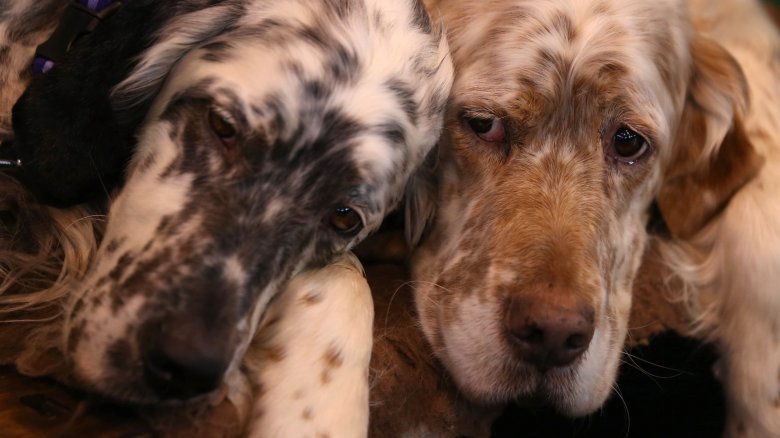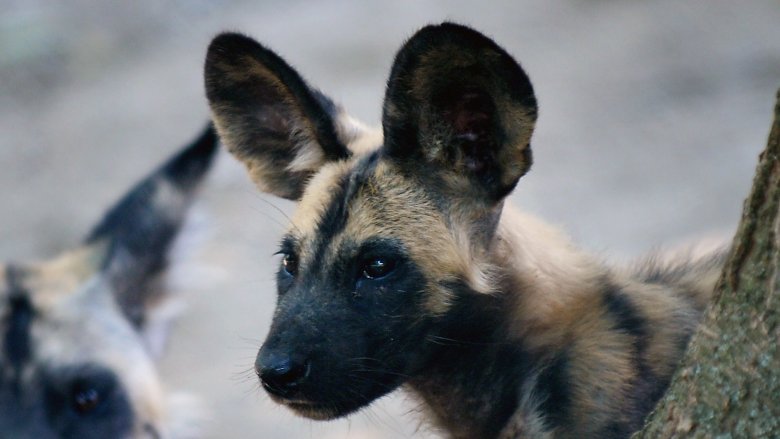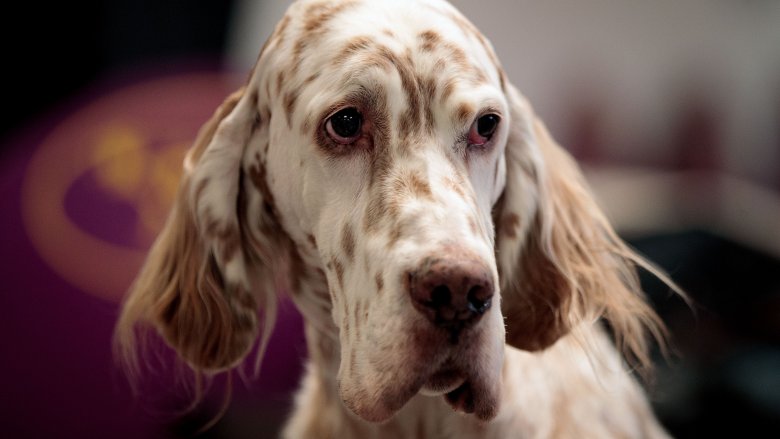The Sad Reason Dog Breeds Go Extinct
Every living thing wears out its welcome on Earth eventually and takes a one-way train to oblivion. But some departures hurt worse than others. The thought of saying goodbye to a good friend stings like a bed of angry bees, so if you're a dog lover, the thought of losing an entire breed of man's best friend must burn like flaming glass shards in your veins. As painfully unthinkable as it is, dog breeds go extinct and it might not be for the reasons you think.
Dog breeds go extinct in the wild and not-so-wild
Broadly speaking, extinctions occur through natural selection. As described by the Natural History Museum at Tring, the theory of natural selection holds that "organisms that are more adapted to their environment are more likely to survive and pass on the genes that aided their success." In the wild, the aptly named African wild dog faces extinction because of factors like habitat loss, high rates of rabies and distemper, "competition with larger predators like lions," and "accidental and targeted killings by humans," according to the World Wildlife Fund for Nature.
Domesticated dogs go extinct as well, and the reason hits closer to home both literally and figuratively. The basic notion of natural selection still applies, but as Pricenomics points out, "A domestic dogs' natural habitat is human society." So a breed's survival is directly tied to how popular it is with humans.
How man causes dog breeds to go extinct
While some dog breeds die out because the human civilizations they lived in got wiped out, others are snuffed out by callous economics. In the 16th century, a dog breed called turnspits was all the rage in the UK. These diminutive doggies were specifically bred to turn a hamster wheel which was rigged to turn a spit (hence the breed's name) for cooking. Once "viewed as kitchen utensils" and used as foot warmers at church, turnspits were so poorly treated that they inspired the creation of the RSPCA. The dogs began falling out of favor as technology advanced and people could replace the breed with machines. Eventually, the turnspits became "a stigma of poverty," a living, breathing symbol that you couldn't afford a fancier machine. Now, these dogs no longer exist.
A similar fate befell the Dogo Cubano, which was highly prized for use in dog fighting and hunting runaway slaves. So "when slavery was abolished, there was no longer an economic reason to maintain the breed." In 2012, the Independent reported that the English setter was "on the brink of extinction" because smaller, exotic breeds had become more trendy. Dogs may be man's best friend, but man is a fair-weather friend at best.


